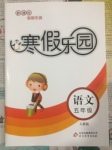Everyone needs friends. Friends bring us happiness and hope in our lives. But the ability to make friends changes from person to person. To some people, making friends is easy, and to others it¡¯s very difficult.
Making friends is a skill, and the first thing is to know how to get on with others.
If you have trouble in making friends, maybe I can tell you how to do it.
Realize your own good points. You have skills and talents(²ÅÄÜ) that others will like.
Believe that you are a good person and have something nice to share with others.
Be humourous. Learn to laugh at yourself and your weakness. Remember to smile at others.
Respect(×ð¾´) the others. Everyone has his own idea. Learn how to listen to others¡¯ ideas without trying to make them accept(½ÓÊÜ) yours.
Be kind. If you are kind to others, they will usually be kind to you. There are hundreds of little things you can do to show your kindness. Open the door for someone. Wave to a friend and so on.
Don¡¯t complain(±§Ô¹). Learn to accept what you can¡¯t change, and work hard to change what you can. No one is willing to hear your complaints all the time.
Never give up. Even if you are faced with some closed-minded people, never give up. And try to find someone who will understand you.
СÌâ1: Why do we need friends according to the passage? __________.
| A£®Friends can do everything for us | B£®Friends can bring us happiness |
| C£®Friends accept our ideas all the time | D£®Without friends, we could not live |
СÌâ2: What¡¯s the first thing we should learn in order to make friends?_________.
A. To help others B. To smile to others
C To get on with others D. To listen to others¡¯ complaints
СÌâ3: Which of the following shows a sense of humour?_____________.
| A£®Opening the door for someone |
| B£®Complaining to others all the time |
| C£®Laughing at ourselves and our weakness |
| D£®Finding someone who will understand us |
СÌâ4: How many pieces of advice does the writer provide when we have trouble in making friends? ___________.
| A£®Five | B£®Seven | C£®Nine | D£®Eleven |

 º®¼ÙÀÖÔ°±±¾©½ÌÓý³ö°æÉçϵÁдð°¸
º®¼ÙÀÖÔ°±±¾©½ÌÓý³ö°æÉçϵÁдð°¸